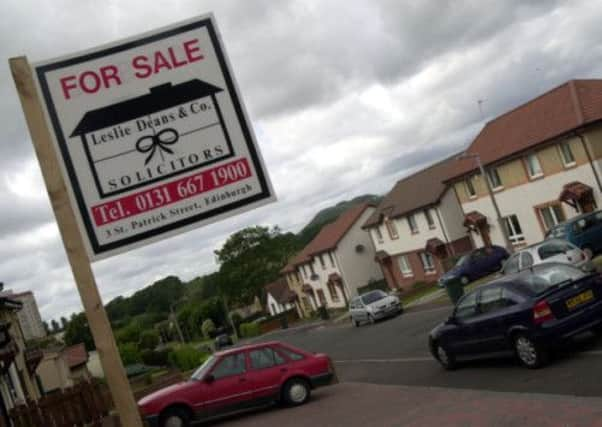Stamp duty rises ‘choking’ housing market recovery


Campaign group the Homeowners Alliance has found the typical stamp duty paid when buying a home has rocketed more than tenfold since the mid-1990s.
The average stamp duty paid by home-buyers has risen from £532 in 1995/96 to £5,957 by last year, according to the Stamping on Aspiration report.
Advertisement
Hide AdAdvertisement
Hide AdThe report argued that the “ramping up” of stamp duty costs by successive governments had been a major factor behind a sharp drop-off in home ownership rates.
The alliance said stamp duty had been “transformed from a small irritant to a major dampener on housing activity”, rising seven times faster than inflation over the last decade-and-a-half.
In 1997, the government made £830 million from residential stamp duty, but by a decade later it was eight times higher at £6.68 billion, the group said. It is urging a radical overhaul of the system, including stamp duty thresholds being raised annually in line with house price increases and first-time buyers being exempt from paying any stamp duty at all.
If stamp duty thresholds had risen in line with house-price hikes in recent decades, the £250,000 threshold would now be more than £600,000 and the £500,000 threshold would have been lifted to £1.2 million, the group said.
The report found that the highest stamp duty was typically paid in London at £17,529, while the lowest was in the north-east of England, at £1,466 on average.
Paula Higgins, chief executive of the Homeowners Alliance, said: “The housing market is being choked by the rising cost of stamp duty. The overwhelming majority of people want to own their own home, and the government says it wants to help them. But the reality is that its ‘home tax’ is taxing their aspirations to death.”
The Homeowners Alliance said the average stamp duty paid now equated to almost three months’ worth of average earnings, compared with just over one week’s worth of typical wages in the mid-1990s.
The number of stamp duty bands has risen from one in the mid-1990s to five.
Advertisement
Hide AdAdvertisement
Hide AdThe highest rate is on homes worth over £2 million, at 7 per cent. People buying a property worth £125,000 or less do not have to pay any stamp duty.
There have been some signs of a pick-up in the housing market in recent months, helped by various government schemes to make it easier for people to get access to a mortgage.
The number of mortgages on the market has risen sharply and mortgage rates have been slashed since the launch last August of the government’s Funding for Lending initiative, which gives lenders access to cheap finance. Schemes called NewBuy and Help to Buy have also been specifically aimed to give people with smaller deposits a helping hand, and lenders have been reporting increased activity among first-time buyers.
The report argued a reduction in stamp duty rates could actually increase government revenues, as people would feel more encouraged to move house.
The report used figures from a mixture of sources, including the Land Registry, HM Revenue and Customs and the Office for National Statistics.